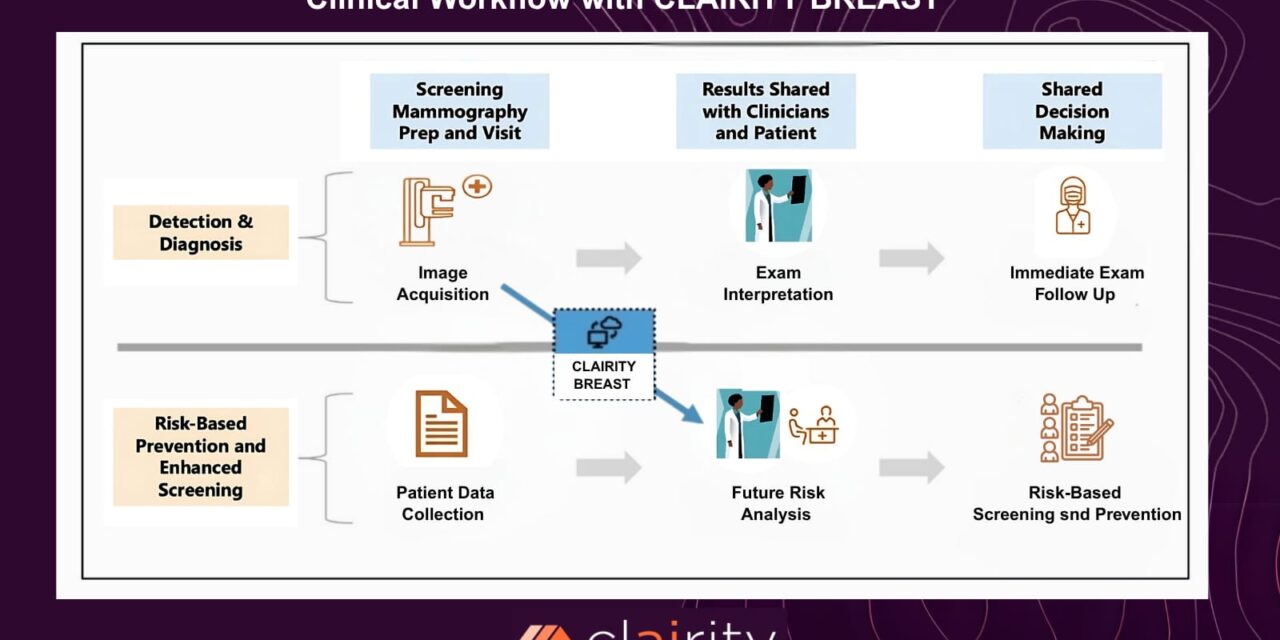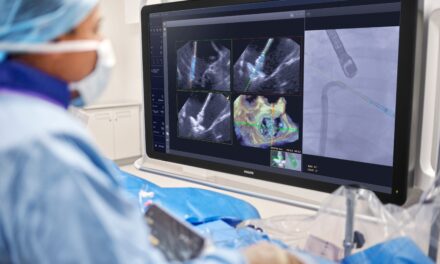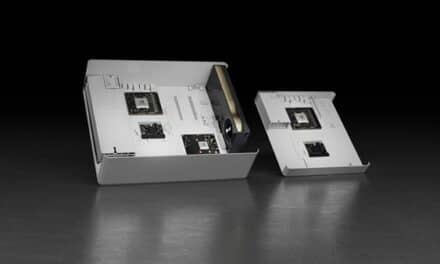The FDA grants De Novo authorization for a new device for future five-year breast cancer risk prediction, based on an image alone.
Clairity Inc, a digital health company advancing artificial intelligence (AI)-driven healthcare solutions, has received US Food and Drug Administration (FDA) De Novo authorization for Clairity Breast, a novel, image-based prognostic platform designed to predict five-year breast cancer risk from a routine screening mammogram.
With this authorization, Clairity is planning to launch among leading health systems through 2025.
Clairity Breast analyzes subtle imaging features on screening mammograms that correlate with future breast cancer risk, making early risk prediction feasible based on a screening mammogram alone. The result is a validated five-year risk score delivered to healthcare providers through existing clinical infrastructures, supporting more personalized follow-up care.
“For more than 60 years, mammograms have saved lives by detecting early-stage cancers. Now, advancements in AI and computer vision can uncover hidden clues in the mammograms—invisible to the human eye—to help predict future risk,” says Connie Lehman, MD, PhD, founder of Clairity, who is also a breast imaging specialist at Mass General Brigham, in a release. “By delivering validated, equitable risk assessments, we can help expand access to life-saving early detection and prevention for women everywhere.”
Limitations of Traditional Risk Models
Each year, more than 2.3 million new cases of breast cancer are diagnosed worldwide, including over 370,000 cases in women in the United States. Early detection and risk reduction are powerful tools to save lives, but their most effective deployment depends on accurate risk assessment. Most risk assessment models rely heavily on age and family history to predict risk.
However, 85% of women diagnosed with breast cancer have no family history, and nearly half have no identifiable risk factors. In addition, traditional risk models, built on data from predominantly European Caucasian women, have not generalized well to women of diverse racial and ethnic backgrounds.
“Personalized, risk-based screening is critical to improving breast cancer outcomes, and AI tools offer us the best opportunity to fulfill that potential,” says Robert A. Smith, PhD, senior vice president of early cancer detection science at the American Cancer Society, in a release. “By integrating AI models that assess individual risk, we can better identify women at higher risk, and those who may benefit from supplemental screening methods, such as MRI, improving early detection and more effective prevention strategies.”
Photo caption: Clinical workflow within Clairity Breast
Photo credit: Clairity





